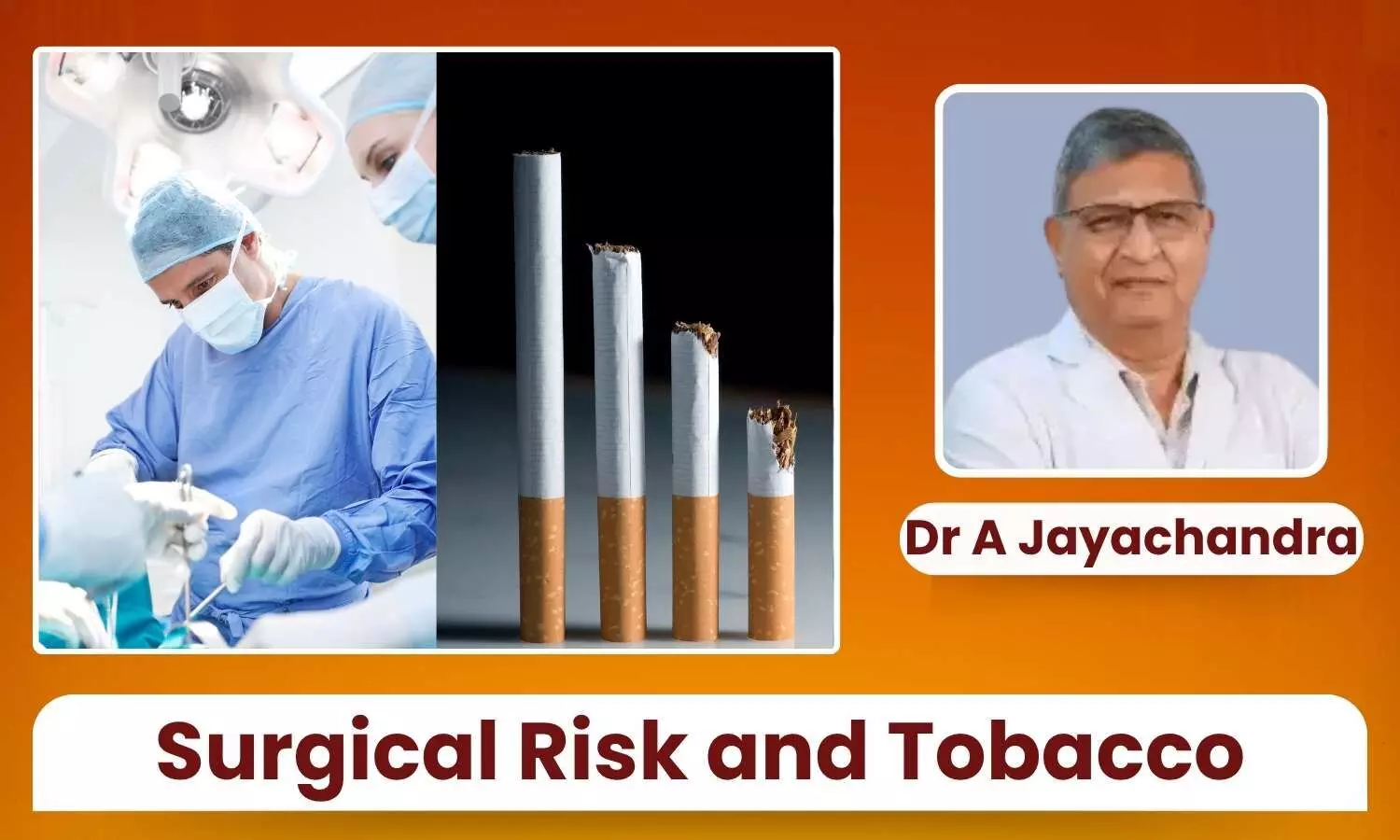Surgical Risk and Tobacco: Why Even a Few Cigarettes a Day Delay Recovery - Dr A Jayachandra

It’s a question many patients ask right before surgery: “I only smoke occasionally, do I really need to stop?” The short answer is: yes, absolutely.
Whether you’re a heavy smoker or someone who lights up just a few times a week, tobacco use, even in small amounts, can significantly interfere with your surgical outcome and recovery.
As surgeons, we aren’t just focused on what happens inside the operating room. We care deeply about what comes after: your wound healing, risk of infection, and how quickly you get back on your feet. And tobacco is one of the biggest obstacles in that journey.
How Tobacco Affects Surgery?
Most people understand that long-term smoking can lead to lung disease and cardiac difficulties. But what is frequently neglected is how smoking, especially occasional smoking, affects short-term healing and surgical safety.
Here's what occurs inside your body when you use tobacco:
- Nicotine causes blood arteries to constrict, resulting in reduced circulation. This means that less oxygen and nutrients will reach your surgical site, both of which are necessary for recovery.
- Smoking can impair immunological response, making it more difficult to fight illnesses. Following surgery, this increases the likelihood of wound infections, pneumonia, and delayed healing.
- Cigarette smoke contains more carbon monoxide, which binds to red blood cells than oxygen, leading to lower oxygen levels. This deprives tissues, particularly surgical wounds, of the oxygen required to regenerate.
- Smoking causes thickened secretions in the lungs, reducing their ability to remove them. This makes post-operative breathing difficult and increases the risk of lung infections, particularly following general anaesthesia.
- Anaesthesia complications: Smokers are more likely to have complications with anaesthesia, including higher chances of airway irritation, irregular heart rhythms, or slower recovery after the procedure.
Occasional Smoking is Still Risky
Even if you smoke just a few cigarettes a day, the risks remain. Studies have shown that “light” smokers can experience delayed healing and increased surgical complications, nearly as much as heavier smokers.
The body doesn’t differentiate between a pack-a-day smoker and someone who smokes only on weekends. The physiological effects still exist, particularly around the time of surgery.
In fact, one cigarette can shrink blood vessels for up to an hour. If you smoke the day before or morning of your surgery, your body is already starting off at a disadvantage.
After Surgery
Healing does not end after the final stitch is applied. Post-operative care is a delicate process in which your body regenerates tissue, fights dangerous infections, and recovers strength. For smokers, the process is slower and hazardous.
Smoking increases the risk of wound dehiscence (reopening of a surgical incision) by up to two times.
• Higher risk of chronic pain after surgery.
• Higher risk of blood clots and delayed bone healing, particularly during orthopaedic procedures.
• More prone to scarring complications, including poor cosmetic results in plastic or reconstructive procedures.
The Good News
Here’s the encouraging part: quitting even a few weeks before surgery can dramatically reduce these risks. Oxygen levels improve, circulation begins to normalize, and your lungs start clearing themselves of mucus and irritants.
Ideally, we recommend stopping tobacco use at least 4 to 6 weeks before surgery and staying smoke-free during the recovery period. The longer you quit, the more your body benefits, but even short-term quitting helps.
Some patients worry about withdrawal or stress leading up to surgery. If you’re in this boat, talk to your doctor. There are nicotine replacement options and support systems that can help you get through the crucial pre-op phase safely.
A Surgeon’s Advice
As surgeons, we take every precaution to make your procedure safe. But surgery is a two-way partnership. Your lifestyle choices, especially around smoking, play a major role in how smoothly your recovery goes.
If you're scheduled for a surgery, or even just considering one, and you use tobacco in any form (including e-cigarettes or smokeless tobacco), talk to your doctor honestly. Don’t minimize your usage. We’re not here to judge. We’re here to help you heal.
Final Thoughts
Surgery is a big event, and your body deserves every chance to recover well. Even a few cigarettes can tip the balance toward complications. But the good news is, it’s never too late to make a change.
If you’re a smoker and planning surgery, even months from now, visit a specialist. Understand the risks, and make a plan. Your future self will thank you.


